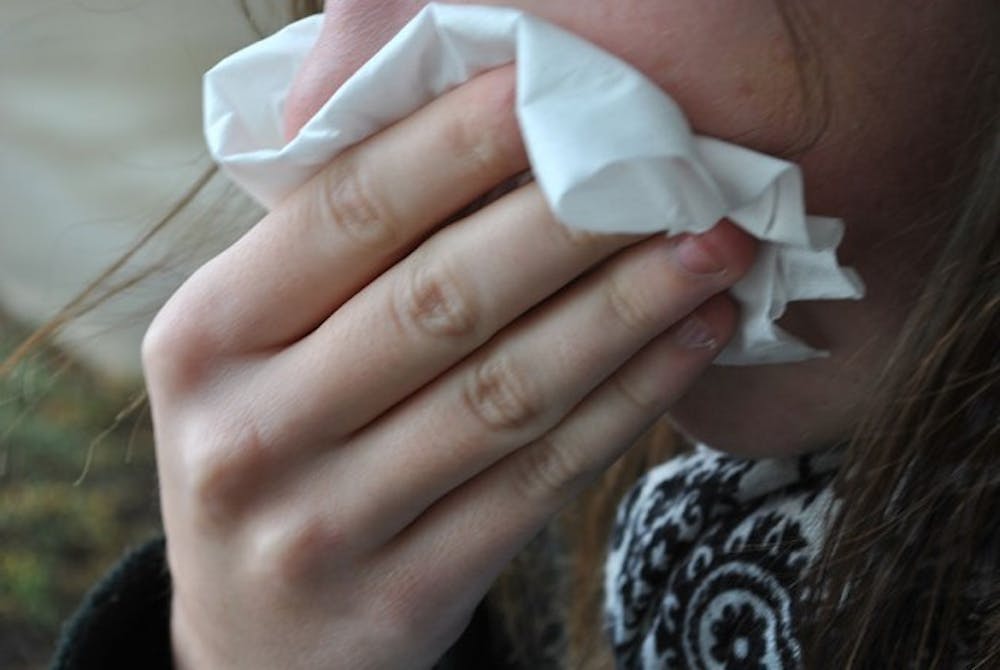The most wonderful time of the year can take a turn for the worse pretty quickly if you wake up Christmas morning in the grips of the flu.
As flu season nears, the staff at Health Services has a little advice on how to best avoid catching the flu and stay healthy for the holidays.
Although it varies from year to year, flu season in Western New York begins approximately around late December, according to Susan Snyder, director of Health Services.
"We will start to see flu on campus as students return for the spring semester," Snyder said. "Last year was really an abnormality in terms of seeing so many flu outbreaks in the fall semester. We haven't seen that this year yet."
First and foremost, Snyder recommends that all students come into Health Services to get a free vaccination. Each year's vaccines are manufactured to target what the World Health Organization expects to be the most dominant strains of flu for the year, based on statistics of previous outbreaks.
Because the strain responsible for the 2009 "swine flu" outbreak, which is not actually synonymous with H1N1 but rather a sub-type of it, was not expected and not included in the seasonal flu vaccine, those who had received the standard shot were not protected from this strain. A second shot was then required that targeted "swine flu" specifically.
This year, the strain of H1N1 responsible for last year's pandemic will be included in the seasonal vaccine, along with the other strains expected to be dominant.
Although last year's swine flu strain is expected to return again, it's unclear if it will be as widespread.
"Because the flu season really hasn't started in Western New York, we don't have a lot of data to go on," Snyder said. "It appears that H1N1 is just one of the many kinds of strains of flu [that will appear this year]. We anticipate that some people will experience it, but we're not sure it will be the dominant strain."
Aside from the typical preventative practices of washing your hands, covering your coughs, and getting good rest, Snyder recommends a few other measures that might not be so apparent.
People should try to avoid sharing beverages and food at all times. For college students, this might mean planning ahead by buying some extra party cups and keeping reuse to a minimum.
For those who do end up contracting the flu, little can be done to speed the virus' progress. However, it is advisable that those infected try to avoid any direct contact with other people while sick.
"I think one of the things that's hard for students, because they have so many commitments, is to stay home if you have a fever [or any of the other major symptoms of the flu]," Snyder said. "Until your fever frees, you're still potentially infecting other people. Trying to not have as many visitors in your room or living space is a good way to help prevent it from spreading."
Although those with manageable cases should avoid going in person to Health Services to avoid spreading the disease further, they are welcome and recommended to call in to get some advice from a nurse or another health professional.
Individuals with chronic illnesses or conditions, however, are typically at a much greater risk of experiencing more dangerous complications when coming down with the flu. Snyder recommends such people call in to see if they're in need of special medical care.
"Prevention is such a big issue for us," Snyder said. "Once you have the flu, there isn't a magic cure; you just have to let it ride out. If you can prevent it, we would strongly encourage that."
E-mail: news@ubspectrum.com





